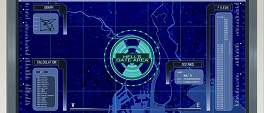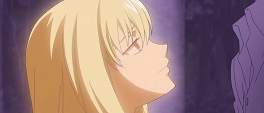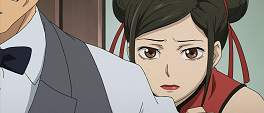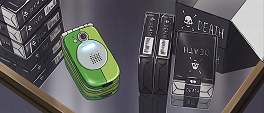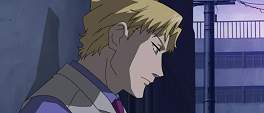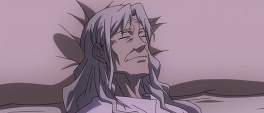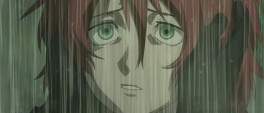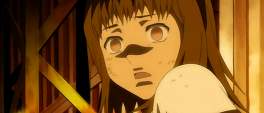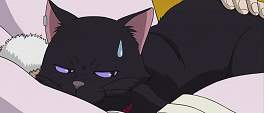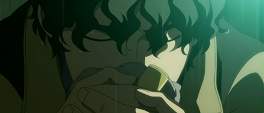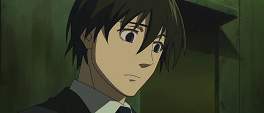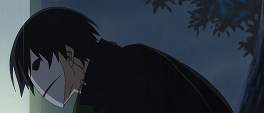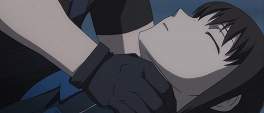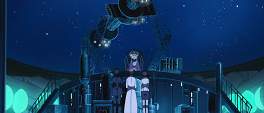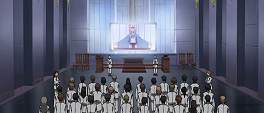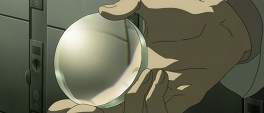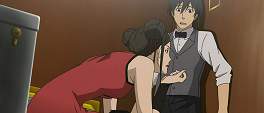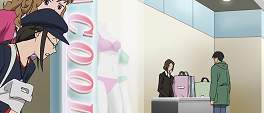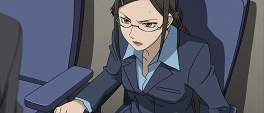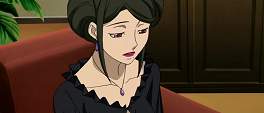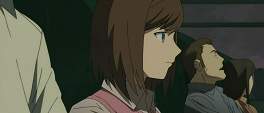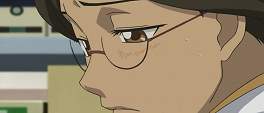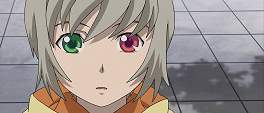This is a massive bit of text, hence the jump-to links.
Contractors
The easiest place to start is with some of the terminology and jargon used in the series: the most prominent one being a "contractor". The most obvious definition is one who has signed a contract for a specific price, in this case the remuneration that is paid when contractors use their powers. It's odd that a contractor is mentally compelled to complete the remuneration and it's never explored what would happen if it isn't completed, it highlights that contractors are merely puppets to their abilities however; it's obvious that none of the contractors asked to be imbued with their abilities and it follows that they would have no control over their payment, this theme of powerlessness or inevitability runs through the series from the overarching international conglomerate, The Syndicate, through to the emotionless Dolls.
The very idea of the payment is an odd one though as if the contract is made with someone or something, then what benefit do they gain from their compulsive ticks? The obvious answer is that the contract is with themselves and the remuneration is a reflection of themselves, this falls down only through lack of back-story with the characters: the cigarettes November 11 smokes surpasses his aversion for them, Amagiri's consumption of eggs despite his concern over cholesterol; both are cursory and explicitly mentioned as being against their proclivities whereas April enjoys her drinking remuneration. Whether these repayments have some kind of significance with their life is unknown but it's enough to question the theory. The other theory is that the contract is with an unknown entity; there is an undercurrent of both religious and extraterrestrial origins in the series so it's not impossible the contract is silently taken out with them, aliens to perhaps study humans or a deity to test humans, examining their temperament when faced with the fantastical. The former is more probable given the explicit mention of a meteor which says extraterrestrial rather than God.
It is stated early on in the series that Contractors feel no emotion, and after ignoring Hei who is a special case, this is true insofar that Contractors don't let their emotions get the better of them. Obvious survival instincts like fear are tempered with reason, all this means that Contractors act with a calculating aloofness, prioritising their own survival over others; this comes to the fore at the end of the series when contractors are united in an attempt to stop their extinction, this is despite their imminent demise for a longer term "greater good" for Contractors as a whole. It's unknown what exactly causes this change in emotional outlook but it is paired with the process of being a Contractor and is rescinded when one loses that status (such as becoming a Regressor or a half-way Moratorium). Perhaps the abilities gained changes the Contractor's brain physically thus causing the "loss" of emotion or perhaps it's simply a universally held world-view when one gains extraordinary powers; indeed it is shown that with Moratoriums, emotions can cause the Contractor abilities to malfunction or act wildly which probably reduces their life expectancy.
The final stages of being a Contractor are either being a Regressor or somehow fulfilling the nebulous contract. The former removes the powers gifted to the Contractor and gives them a degree of their emotions "back", the only Regressor in the series is Havoc who still seems distant, though this is perhaps better than what her child-blood drinking remuneration made her act like. This state is seen as a kind of enlightenment for Contractors and just like the religious enlightenment, there seems to be no known path to achieving it. Fulfilling the Contract is shown with Mao, apparently the loss of his original body was enough to allow him to use his powers without a remuneration; whether this is true or whether the act of losing his body simply meant the thought processes compelling remuneration were now absent is unknown and the idea of fulfilling the Contract isn't visited again. Whether the Contract is able to be satisfied at all is the big question as from what Amber mentions in the final episode, it would imply that the Contract is "beginning" of something and completing it would be the end, this is of course all speculation given the lack of information all round.
Themes
Darker than Black has a number of primary themes running through it, some more pronounced than others; these include: loss, identity, control, religion and conflict. Loss is the easiest one to quantify: Hei lost his sister, Mao lost his body, Huang lost a lover, Yin lost her sight, Tokyo lost its sky, Contractors lost their emotions, the world lost control; the list goes on, from the very personal to the world altering. Loss and control go hand in hand with each other, while the Contractors are able to control their emotions to an alarming degree, the Syndicate is controlling them, just as the contractors control Dolls; how far you take it is how much you ascribe to its importance on the series. At one end you have the amorphous Syndicate who can exert control over countries and governments while on the other there is Misaki who seems to only be taken along for the ride by everyone else, a complete loss of control. This leads on to conflict, both physical and emotional; the Syndicate and Tokyo Police Department fights against the Contractors though for different reasons while Evening Primrose (EPR) fights against them. Misaki fights against feelings of betrayal and powerlessness while Hei seems to fight against himself.
Thus, identity, one of the "big" themes; Hei is not the easiest one to discuss (Mao and the other body-switching Contractor are more immediate) but Darker than Black is fundamentally Hei's story. It's shown from the start that Hei essentially leads two lives, one as the gentle Li and the other as the elite Contractor BK-201, but then the third, transitory life is that of Hei, the confident agent of the Syndicate. It's naturally assumed that Hei is the "real" persona and that his life as Li is nothing but a cover and his masked-Contractor visage is but an extension of Hei; as his relationship with his sister Bai is elaborated upon it's shown that Li's demeanour is how Hei used to be before he became a brutal killer in order to either protect his sister or stay with her. BK-201 is the logical conclusion to that personality, masked and inhuman, he doesn't speak and only moves to kill. The second opening of the series ("Kakusei Heroism ~The Hero Without A Name~") shows this blatantly as Hei is first ensnared by and then kills visages of himself. His inner turmoil begins when his sister is "killed" during Heaven's War at Heaven's Gate, it is all but stated by Amber that Bai wasn't killed (by her no less) but went into Hei, imbuing him with Contractor-like powers without the remuneration; this started the split in Hei with his three personae, but throughout the series they blend together, punctuated by his line at the end that the person Hei no longer exists. Emotionally Hei perhaps feels responsible for his sister's death, his physical proximity to her in Heaven's War shows his emotional closeness to her however it's the split between being a human and being a contractor that affects the series narrative.
Contractors are always shown as and referred to as "Contractors", never as humans with abilities; their powers stripping them of their humanity enough for them to be treated as something wholly different to humans, as if they're a different race. With the general populace unaware of Contractors, the Syndicate, Governments and the Police persecute or recruit Contractors to try and eradicate them. Hei is seen by Amber (and Evening Primrose) as the best one to make a choice for the future of Contractors, all of their abilities yet still with emotion; Hei struggles with this burden by donning his shinigami mask, delineating his humanity and his status as a Contractor. Anyone's status as a Contractor, regardless of demeanour or history, is enough to cause open resentment among those "in the know" almost like racial persecution has shown to do; all the more telling as Contractors seem unable to chose their status.
Religion
The last major theme is a worthwhile discussion in itself. The series itself apart from one story is all but devoid of religious overtones, the labelling of the gates as "Heaven" and "Hell" seems fairly innocuous rather than subversive but there are certain areas worth investigating although most of it is speculative. Amber refers to the fighting around Heaven's gate as "Heaven's war" which could either be a reference to the book by Micah Harris and Michael Gaydos which is unlikely given its apparent content; or it could be referring to the contractors as angels which would fit their "Heavenly Body" status when viewed as stars in the sky. One of the great overseers of the Darker than Black world is that of the Syndicate which is disparate enough never to be given a face yet continually manipulates events and people; fundamentally it is the Syndicate which Amber and Evening Primrose fight against, it's not such a huge leap to equate the Syndicate as a metaphor for God (or other similar omnipresent deity) which would mean that the fight is against God, similarly Mao, who is permanently wired in to the Syndicate, ostensibly to maintain his humanity rather than sink into cat form, talks with God directly, issuing proclamations to Hei. Viewing the Syndicate as a deity would explain their wish to destroy the gate(s): with a new, potentially powerful force that would rival them in play, it would make sense to destroy it before it could topple them, something they try and ultimately fail to do.
Astronomy and science
The strong astronomical context the series has lends weight to the theory that the Contracts and related detritus (meteor, gates etc.) are extraterrestrial in origin. The first place to start is the denomination of each Contractor as having a Messier code, "Messier" more than likely referring to Charles Messier a French astronomer who created a catalogue of Messier objects. This implies that Contractors are astronomical objects, bolstered by their presence as stars in the false skies above Tokyo which are monitored by the Astronomical Observatory; the stars shine (or somehow change) when a Contractor uses their power and a falling star is seen when a Contractor is killed. This is all academic as it's difficult to discern what the presence of the false-sky and stars is a metaphor for, whether it is one at all. Hei (or rather Li) is seen stargazing at various points throughout the series, perhaps searching for himself amongst the stars or perhaps out of habit from his previous hobby. The astronomical connection runs deeper however as various machines amongst the PANDORA research centre are named after astronomical bodies including the Neptune particle accelerator and the Saturn anti-gate system.
The meteor and meteor fragments are instrumental in the series and, more than likely, their origin and powers are the root cause of Contractors, the two gates and everything involved. It's stated by the prominent scientist (WHO IS THIS?) that both of gates are in fact one and the same, which if you ignore their names (Heaven's gate and Hell's gate) it's plausible the gates were caused by the enigmatic meteor considering fragments of it were found within the gate areas. Interestingly, if you take the position of Heaven's gate (shown to be in South America, specifically Brazil) and the position of Hell's gate (Japan, Tokyo, Asakusa), the connection on an equatorial map is roughly 23.5 degrees which happens to be the tilt of the Earth along the Sun-Earth plane; interesting insofar that the supposed Solar Maximum is when the Stargazer starts speaking and when Contractor activity is focused. The solar maximum is the time of greatest solar activity which causes its magnetic field lines to distort which can cause increased Aurora activity. Again this is all academic as nothing is ever explicitly stated, but it makes for interesting reading and is unlikely to be coincidental. Events during the series give weight to these thoughts such as when people look towards the fake sky over Tokyo during the Solar Maximum, hoping to be able to see the real stars or the Stargazer suddenly speaking.
The meteor itself, like so many things in the series, is never shown or fully explained; one of its fragments is shown as a perfectly circular lens which, strangely, reforms after being broken by Amber when she is within Hell's gate. Originally it is easy to believe the meteor fragment is in fact very small and the glass-like object is a container or petri-dish, this idea is shattered quite literally by Amber as she hands out pieces to various Contractors. The meteor fragment is shown to give Contractors power above-and-beyond their "normal" abilities which in the case of Bai, gave her the ability to change matter over a massive area and "hide away" Heaven's gate. The idea of the meteor fragment being a lens is interesting in that it has the ability to bring things into focus (Contractor abilities, backstory etc.) or blur them further (the line between Contractor and human, friend and foe); that is of course if it is indeed a lens and not simply just made to look like glass.
The Gates
While a major part of the series, the Gates are the points which are given the least explanation of all; the story takes place after the "destruction" of one gate and all access to the other gate is strictly guarded. We know that Heaven's gate was something worth fighting over, enough to send many Contractors and possibly humans to their deaths. It's implied that this was a push by the Syndicate to try and take the gate for themselves which evidently back-fired when Bai caused the gate to shift into a "sacred space where no one may tread". The very idea of them being "Gates" implies that they lead there, either to each other which would put what the scientist says into perspective, or perhaps to their named places, Heaven and Hell. If you follow that idea to the logical conclusion, Bai would then be a God like figure now located in heaven ("God is in heaven") while Hei would be the devil, fitting as he refers to himself as the "God of death" (shinigami). Nothing is really known about the gates physically other than the space they inhabit is somehow "fractured" and that normal physical laws don't apply, seen again in the final episode where Yin and Hei manage to walk across vertical walls and "disappear" into thin air. Whether this is the true form of hell is unknown, but it's stated that observer spirits which try and venture too deep are caused intense pain, lending strength to the idea that the spirits really are the Doll's souls.
All sorts of odd occurrences are attributed to Hell's gate, most notably strange flowers which cause madness cultivated by one of Misaki's old school friends. It's hard to know what to make of these considering they are never given context in the overall story and never mentioned outside of their respective stories, it could be as simple as aberrant items caused by the space within the gate or they could be temptations if staying with the religious view. The items serve no greater purpose but provide instant gratification from the madness of the flowers to the power suppression of the seeds; over the long term they back fire and cause the demise of their users. Staying with the religious theme also gives the idea that Heaven is now out of reach, snatched from the hands of mortals, and Hell is just as enticing and just a close, so much so that people would fight to get in it.
The most confusing part of Hell's gate at least, is its ability to manifest false realities. These are seen both times by Hei using Bai's power, so whether it is a function of the gate itself or just part of Bai's power is unknown, however it seems represent some kind of afterlife for the Contractor(s) involved, reuniting them with old acquaintances or allowing them to carry out a life-long wish as seen by the CIA scientist Nick Hillman. Whether the personae seen within this space are just introspective thoughts of the Contractor or they have some substance to them is hard to say; Amber is present in Hei's "afterlife" in her original, adult form, yet she is still able to control time, acting like Hei did in Nick Hillman's vision, present but uninvolved. Amber uses this as a way to let Hei know the true outcome of his choice and then reverses time to let him make an informed decision. It is known that this action causes a real-world effect in the form of an explosion, Nick's vision cause Hei to wake up in a sizeable crater so it's fair to assume that it is similar to what caused Heaven's gate to disappear.
Other characters
Misaki
It's perhaps poignant that of all the characters in the series, Misaki is perhaps the one who does the least yet she is the easiest protagonist to identify with. While the narrative is distinctly Hei's, it is with Misaki that the story unfolds, we learn what she learns and ultimately, don't know what she doesn't know by the end of the series. She's a very reactive character and either doesn't see the need to act on impulse despite getting caught in several life-and-death situations. Her relationship with Hei (really Li) is interesting as it demonstrates a desire in Misaki for friendship but her visual similarity to Bai is likely something not lost on Hei.
Bai
Hei's sister is the key to why Heaven's gate "disappeared" as well as Hei's powers. Her Contractor ability is only explained as the "ability to manipulate matter on a low level" which in theory, given enough control and skill, could mean just about anything is possible. Her "presence" inside Hei is testament to her ability, whether subsumed through spirit or whether something physical, Hei was turned from a non-Contractor into Bai's Messier number. Evidently Bai perhaps had the same knowledge that Amber had with what the Syndicate was trying to achieve with regards Contractors which is why she "sealed away" Heaven's gate, then placed the ability to chose with Hei. Her personality, what we see of it, seemed wistful and melancholy, one of her few phrases being that she made the sky "cry", killing so many Contractors that the falling stars looked like tears; her remuneration seemed to be a kind of torpor or perhaps just deep sleep, certainly a far cry from blood-drinking or aging that some Contractors are subject to.
Huang
Originally he seems like the typical rotund, cantankerous squad leader, yet his back story later in the series reveals just why he holds such a hatred of Contractors. The most telling part of his story is his supposed inability to get drunk which given his personality, seems to say he has trouble losing control, something he temporarily rectifies with a lover who swiftly betrays his trust. Given the story it's not hard to see place his hatred, but it's not too much of a push to see envy there as well: envy of Contractor's ability to think without being fogged by emotion.
Yin
Her status as a blind Doll is enough for her to be damned twice over, yet through the series we see her regain a small bit of emotion and also to break out of her Doll status. As a Doll she is able to manifest watchers which are usually bound to specific material (water in Yin's case but electricity and glass are other common ones); the most fitting analogy for these are that they represent the personality she once had or more metaphysically, her soul now detached from her body. The most telling scene is the final one in the series of her observer spirit in nearly human form. Little is known of what causes a person to turn into a Doll or whether they can turn back, however it's not a big leap to assume that Dolls come from people who perhaps want to shut themselves off from the world. Yin's back story shows her as an already introverted child and details the death of her pianist father which could have been enough to make her want to withdraw from life. The intervening period where she apparently becomes a doll is never explored and neither is the histories of other Dolls which makes postulations difficult if not impossible. Amber comments that something is happening with the Dolls, and whether this is a physical change or perhaps a gradual emotional change is unclear, however Yin's demonstration of emotions and wants is mirrored by July, the Doll commonly seen with November 11 and April.
Amber
The self-styled head of Evening Primrose, Amber lives to destroy the Syndicate. Little to nothing is known about her back-story or what caused her near pathological hatred of the Syndicate, only that she was friends with Bai and Hei during Heaven's War. Her power is that of manipulating time, a powerful ability with remuneration of reverse-aging; causing her to look younger and younger each time she uses her ability. Amber is the most wanted of Contractors for her pivotal role in activating Bai's powers at Heaven's gate, a move she pulls off again with Hei, only this time Amber adheres to Bai's wish to give Hei a choice for contractors. With the outcome shown to Hei, Amber reverses time, sacrificing herself, allowing Hei to make the "right" choice. It's hard to see Amber as evil given her demeanour and in this case, she has been demonised by Hei and the Syndicate; however her terrorism of Tokyo is hard to swallow and she seems to walk a fine line between fanaticism and rationality. Her relationship with Hei is obviously complex, but more than likely her adoration of him started during Heaven's War, yet Hei's protection of his sister either made Amber hold off, or more likely, made Hei oblivious to her affections.
Other mysteries
There are of course a raft of other little bits that don't make a lot of sense in Darker than Black, and even given the amount of text, it's hard to come up with credible theories for them. Parts like why Misaki's pocket recorder glows along with other meteor fragments, why the Stargazer is able to move and speak even during Amber's time-stops, and what is that gold globe that is present in the last episode? Theorising is all well and good, but the feeling that Darker than Black perhaps hasn't given one all the clues and information to work with is hard to shake. At points it seems needlessly obtuse, especially given that any information on some aspects of the show would be welcome rather than none at all. Time will only tell if further works and releases will at least attempt to explain some of the questions raised by the series.

